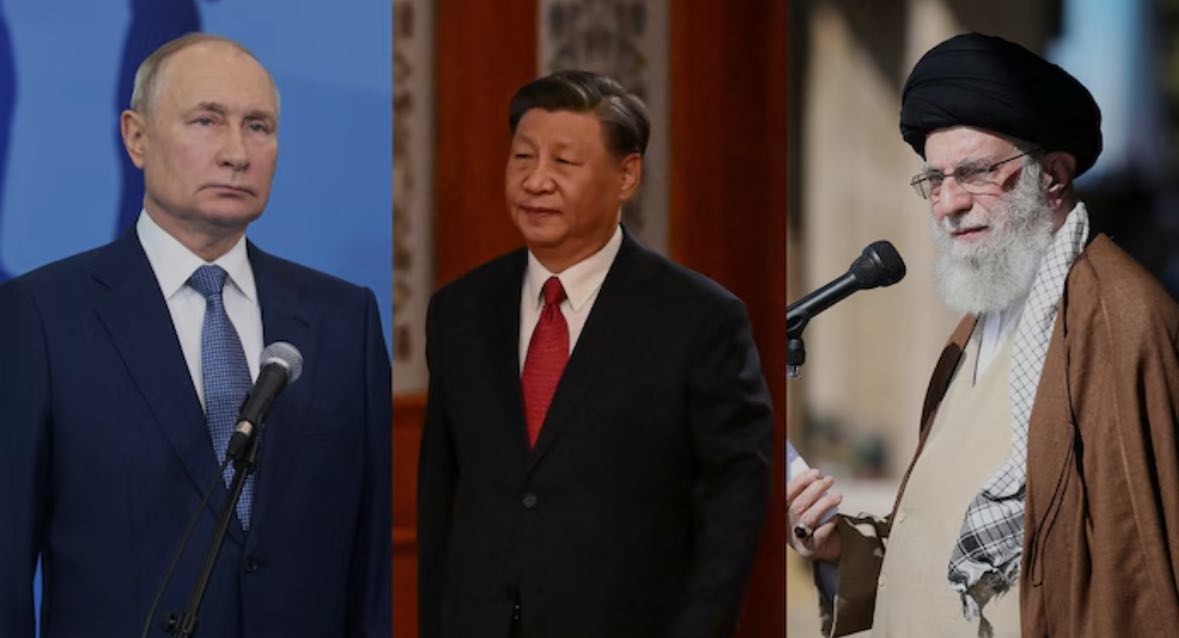Tehran, July 2025
Iran on the Verge of Major Defensive Shift: Disappointed with Moscow, Hopeful in Beijing
Following the decline of Iran’s defensive power during a 12-day conflict with Israel and Moscow’s meaningful silence in the face of attacks, it seems Iran is now seriously reconsidering its security roadmap.
In this strategic adjustment, attention is more focused than ever on China, an Asian power with a broad economic presence in the Middle East that has stayed away from regional military conflicts and is now positioned as a potential and effective arms supplier for the Islamic Republic.
Reasons for the Shift: Russia Entangled, China Free
Russia’s limited ability to send weapons to Iran, especially following the depletion of its military resources in the Ukraine war, is one of the main reasons for this shift.
Although Iran and Russia have a history of joint cooperation in Syria, the nuclear dossier, and drone technology transfer, Moscow’s failure to meet Tehran’s recent defense demands, including air defense systems and advanced fighter jets, has pushed Iran towards alternative options.
Meanwhile, China, by adopting a cautious yet active policy, has kept itself away from direct conflicts in the Middle East, while continuing limited but effective defense cooperation with Iran through trilateral naval exercises with Russia and the transfer of some dual-use technologies.
This unique position has made Beijing an attractive option for Iran.
Tehran Under Threat Seeks Deterrence
Military experts believe the recent Iran-Israel war was a turning point in weakening the Islamic Republic’s defense structure. Evidence points to severe vulnerabilities in Iran’s airspace, disruptions in tracking systems, the disabling of parts of its missile arsenal, and human losses among military commanders and nuclear specialists.
Hongda Fan, a professor at Shanghai University, has stated that air defense is Iran’s immediate priority, and recent advancements in China’s fighter jet and defense system designs have created a unique position for the country to fill some of Iran’s defense gaps.
He added that Iran’s view of China, if Tehran strategically revises its foreign policy, could lead to a longer-term partnership.
A History of Cooperation from the Iraqi Front to the Silk Road
Military cooperation between Iran and China dates back decades. During the Iran-Iraq war, while the two major Cold War powers, the US and the Soviet Union, supported Baghdad, China, despite limited relations with Iraq, became one of Tehran’s main arms sources.
After that, China maintained a policy of minimal intervention, establishing a balanced relationship with Gulf countries, Israel, and Iran, and has sought to strengthen its foothold in the region by participating in projects like the Belt and Road Initiative.
Since 2021, with the signing of a 25-year strategic partnership document between the two countries, hopes for deepening military cooperation have emerged, but these collaborations have so far been mostly symbolic, including the sale of non-sensitive items or joint naval maneuvers.
New Signs of Expanding Defense Cooperation
However, in recent weeks, there have been whispers about negotiations for Iran to purchase J10C fighter jets and Chinese air defense systems. China has not officially confirmed the delivery of these weapons, but has also not denied it.
Beijing’s official stance emphasizes principles of caution, responsibility, and avoiding arms exports to war-torn areas, but a spokesperson for China’s Ministry of Defense has also stated that China is willing to share its military achievements with friendly countries.
Limitations of Alliances Without Mutual Defense Clauses
Contrary to the perception of some observers, neither the 25-year Iran-China agreement nor the Tehran-Moscow defense memorandum includes mutual defense clauses.
None of these documents mention a commitment by the parties to military intervention in case of conflict, creating a kind of alliance without guarantees.
For instance, China adopted a moderate and somewhat passive stance in response to recent Israeli attacks on Iran, and Russia merely resorted to verbal condemnation.
This silence from Eastern allies during Iran’s most critical moments has led some political elites to rethink strategic alliances.
Tehran’s Dilemma: Reevaluation or Isolation
Ali Vaez, Iran Project Director at the Crisis Group, believes Tehran is now at a critical decision-making crossroads. According to him, if Iran wants to deepen cooperation with China, it must show signs of moderation in regional policies and reduce costly behaviors.
Especially since China has extensive economic interests in its interactions with countries like Saudi Arabia, the UAE, and even Israel, and is reluctant to engage in exhausting tensions.
Vaez warns that if Iran continues to be a troublesome player, the likelihood of serious military closeness with China decreases. However, if it adjusts its behavior, Beijing may be ready to take steps beyond symbolic exercises.
Summary
As the balance of power in the region shifts, Iran is reconsidering its strategic partners. Disappointment with Moscow, caution from Beijing, internal pressures, and Tehran’s security vulnerabilities have placed it in a position where it must either show more flexibility in international interactions or face deeper isolation. The future of Iran’s deterrence may no longer be shaped by former Soviet arsenals but in the assembly lines of Chinese fourth-generation fighters.

